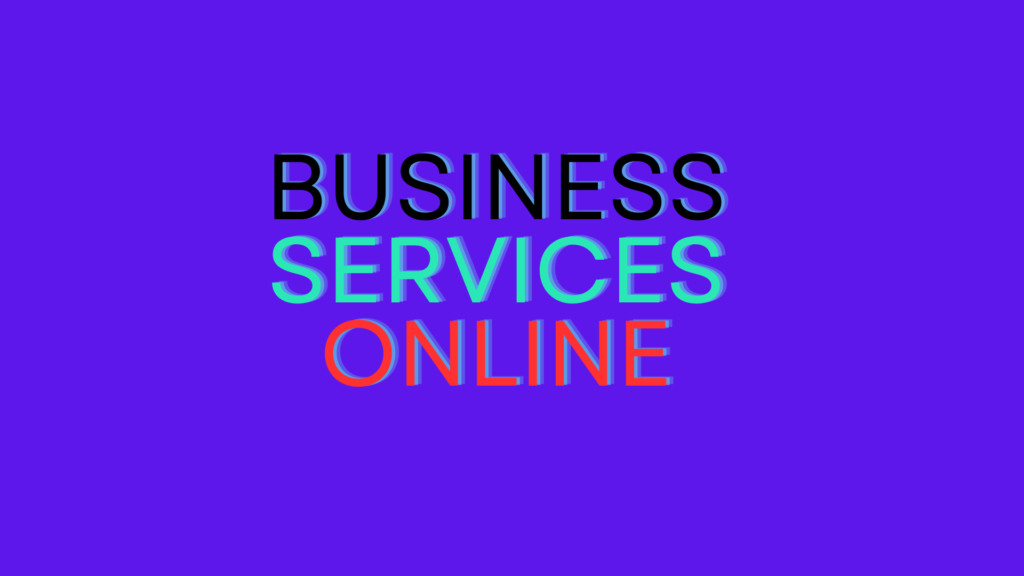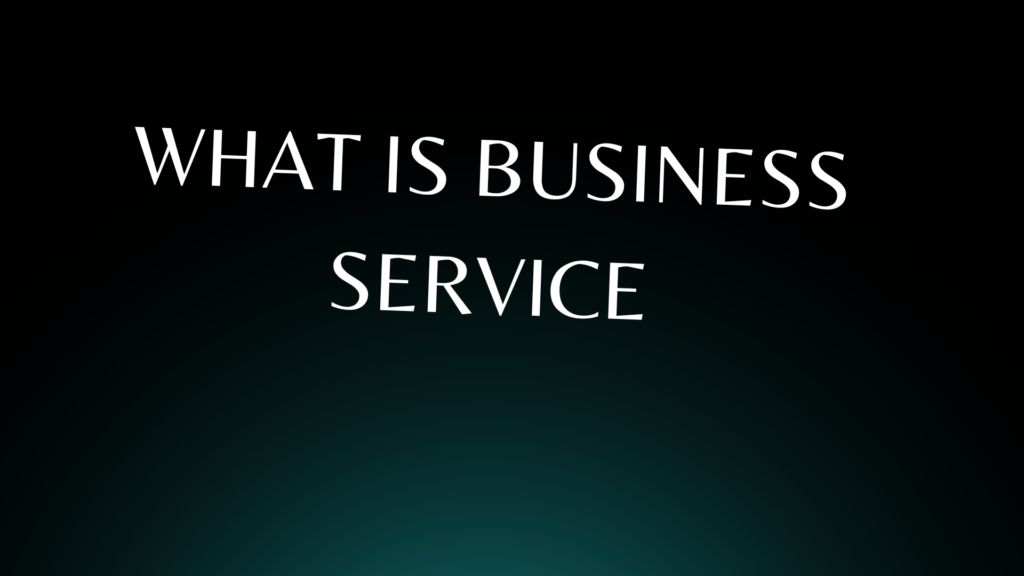how to start online Business service
business services online “Business services online” refers to a wide range of services and solutions offered over the internet to support businesses in various aspects of their operations. These services can include: Virtual Assistance: Providing administrative, technical, or creative assistance remotely. Accounting and Bookkeeping: Online platforms and software for managing finances, invoicing, payroll, and taxes. Digital Marketing: Services such as SEO, social media management, content creation, and email marketing to enhance online presence and reach. E-commerce Solutions: Platforms for setting up and managing online stores, including payment processing and inventory management. Customer Relationship Management (CRM): Software for managing customer interactions, tracking leads, and streamlining sales processes. Cloud Computing: Services for storing, managing, and accessing data and applications over the internet, including Infrastructure as a Service (IaaS), Platform as a Service (PaaS), and Software as a Service (SaaS). Web Development and Design: Creating and maintaining websites, web applications, and online portals tailored to business needs. Human Resources Management: Online tools for recruiting, onboarding, training, and managing employees. Legal and Compliance Services: Online platforms providing legal documents, compliance assistance, and consulting services. Consulting and Advisory Services: Offering expertise and advice on various aspects of business strategy, operations, and management. 11. **Project Management Tools: Platforms and software for planning, organizing, and tracking projects, tasks, and workflows. 12. **Data Analytics and Business Intelligence: Tools for collecting, analyzing, and visualizing data to derive insights and make informed business decisions. 13. **Cybersecurity Services: ** Solutions for protecting digital assets, networks, and systems from cyber threats, including antivirus software, firewalls, and threat detection tools. 14. **Supply Chain Management: ** Online platforms for optimizing supply chain processes, including inventory management, logistics, and supplier relationships. 15. **Training and Development: ** E-learning platforms offering courses, workshops, and training programs to enhance employee skills and knowledge. 16. **Market Research and Competitive Analysis: ** Services for conducting market research, gathering competitor intelligence, and analyzing industry trends. 17. **Translation and Localization: ** Online services for translating documents, websites, and content into different languages to reach global audiences. 18. **Virtual Events and Conferences: ** Platforms for hosting virtual meetings, webinars, and conferences, facilitating networking and collaboration among participants. 19. Financial Planning and Wealth Management: Online tools and advisory services for financial planning, investment management, and retirement planning. 20. **Business Process Outsourcing (BPO): ** Outsourcing non-core business functions such as customer support, data entry, and content moderation to specialized service providers. Content Creation and Copywriting: Platforms and freelancers offering content creation services such as writing blog posts, articles, website copy, and marketing materials. Social Media Management: Tools and agencies that help businesses manage their social media presence, including scheduling posts, engaging with followers, and analyzing performance metrics. Search Engine Optimization (SEO) Services: Consultants and agencies offering SEO audits, keyword research, on-page optimization, and link-building strategies to improve website visibility and search engine rankings. Video Production and Editing: Freelancers and agencies specializing in creating and editing professional-quality videos for marketing campaigns, tutorials, product demos, and more. Graphic Design Services: Platforms and designers providing graphic design services for branding, logo design, promotional materials, infographics, and other visual assets. Email Marketing Platforms: Software solutions for creating, sending, and analyzing email marketing campaigns, including automation, segmentation, and A/B testing features. Legal Document Services: Online platforms offering templates and tools for drafting legal documents such as contracts, agreements, terms of service, and privacy policies. CRM Integration Services: Consultants and developers who specialize in integrating customer relationship management (CRM) systems with other business applications to streamline data management and workflows. Remote IT Support: Managed service providers offering remote technical support, troubleshooting, and maintenance for businesses’ IT infrastructure, including networks, servers, and devices. Virtual Reality (VR) and Augmented Reality (AR) Development: Agencies and developers specializing in creating immersive VR and AR experiences for training, marketing, product visualization, and other applications. These online business services provide valuable support and resources to businesses, enabling them to stay competitive, reach their target audiences effectively, and streamline their operations for improved efficiency and growth. Employee Benefits Administration: Platforms and providers offering online solutions for managing employee benefits, including healthcare, retirement plans, and insurance. Remote Collaboration Tools: Software and platforms facilitating remote collaboration among team members, including video conferencing, file sharing, and project management features. Virtual Assistant Marketplaces: Platforms connecting businesses with freelance virtual assistants who can help with various tasks such as scheduling, email management, research, and more. Event Planning and Ticketing Services: Online platforms for planning, promoting, and selling tickets for events such as conferences, workshops, concerts, and seminars. Online Learning Management Systems (LMS): Platforms for creating and delivering online courses, training programs, and educational materials to employees, customers, or students. Real Estate Services: Online platforms for buying, selling, renting, or leasing residential and commercial properties, as well as tools for property management and real estate investing. Health and Wellness Platforms: Online marketplaces and platforms offering services such as telemedicine, fitness classes, mental health counseling, nutrition coaching, and wellness products. Freight and Shipping Services: Online platforms for comparing shipping rates, booking freight services, tracking shipments, and managing logistics for businesses involved in e-commerce or global trade. Marketplace Platforms: Online marketplaces connecting buyers and sellers for various products and services, including B2B and B2C transactions, as well as specialized niche marketplaces. Sustainability and Green Business Solutions: Online tools and consulting services helping businesses reduce their environmental impact, adopt sustainable practices, and achieve green certifications. These diverse online business services cater to different needs and industries, providing businesses with the flexibility, convenience, and efficiency required to thrive in today’s digital economy. if you need to know business service read more https://www.techtarget.com/searchcio/definition/business-services#:~:text=What%20are%20business%20services%3F,%2C%20increased%20employee%20productivity%2C%20etc.







